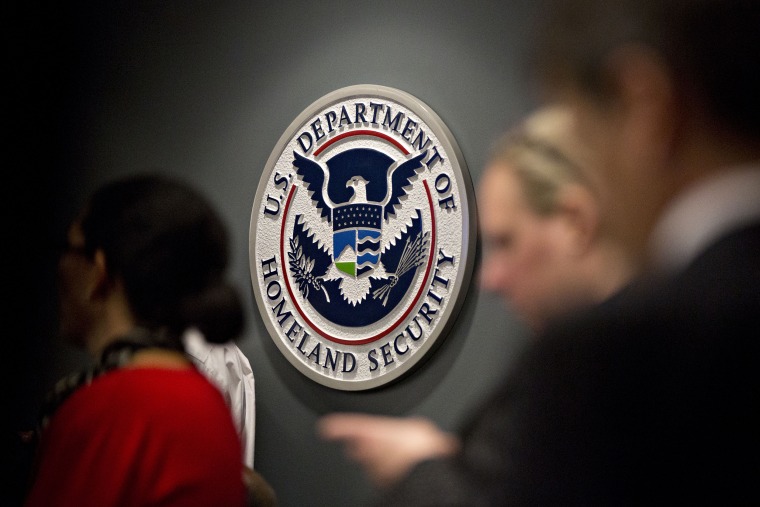In the post-9/11 era, many have embraced an assumption that the nation's most serious security threats are foreign. In recent years, however, experts have pointed in a different direction.
A few years ago, the National Consortium for the Study of Terrorism and Responses to Terrorism conducted a law-enforcement survey and found that domestic, anti-government radicals were considered the most serious threat. Research from the Triangle Center on Terrorism and Homeland Security at Duke University came to a similar conclusion.
University of Massachusetts Lowell scholar John Horgan told the New York Times a while back, "There's an acceptance now [among experts] of the idea that the threat from jihadi terrorism in the United States has been overblown. And there's a belief that the threat of right-wing, anti-government violence has been underestimated."
All of this, of course, gained new relevance after a violent insurrectionist mob launched a deadly attack on the U.S. Capitol three weeks ago. NBC News recently reported that former Department of Homeland Security officials -- from Democratic and Republican administrations - agreed that among the agency's recent difficulties has been a failure to focus on "the rise of domestic threats" during the Trump era.
The NBC News report added, "[I]t was the four years of inadequately monitoring and communicating the rising threat of right-wing domestic extremists that ultimately led to DHS' failure to prevent the events at the Capitol, the former DHS officials said."
Late last week, the Biden administration committed to a different course.
The Biden administration on Friday announced a major initiative aimed at overhauling the government's approach to domestic terrorism, ordering intelligence agencies to conduct a "comprehensive threat assessment" into what officials say has become a pressing national security challenge.... President Joe Biden on Friday ordered the Office of the Director of National Intelligence to conduct the national threat assessment in cooperation with the FBI and the Department of Homeland Security, [White House Press Secretary Jen] Psaki said.
"The Jan. 6th assault on the Capitol and the tragic deaths and destruction that occurred underscored what we have long known," Psaki told reporters. "The rise of domestic violent extremism is a serious and growing national security threat. The Biden administration will approach this threat with the necessary resources and resolve."
She added, "The key point here is that we want fact-based analysis upon which we can shape policy. So this is really the first step in the process, and we will rely on our appropriate law enforcement and intelligence officials to provide that analysis."
NBC News' report went on to add, "The White House National Security Council also will develop a capability to counter domestic violent extremism, Psaki said, and launch a policy review 'to determine how the government can share information better about this threat.' The administration will also look for ways to address domestic radicalization and the role of social media, Psaki said."
These steps may not sound especially revolutionary, and by most measures, they're not. These are common-sense measures that may very likely make a difference in addressing one of the nation's most serious security threats.
But they're also steps the executive branch wasn't taking between 2017 and 2020.
